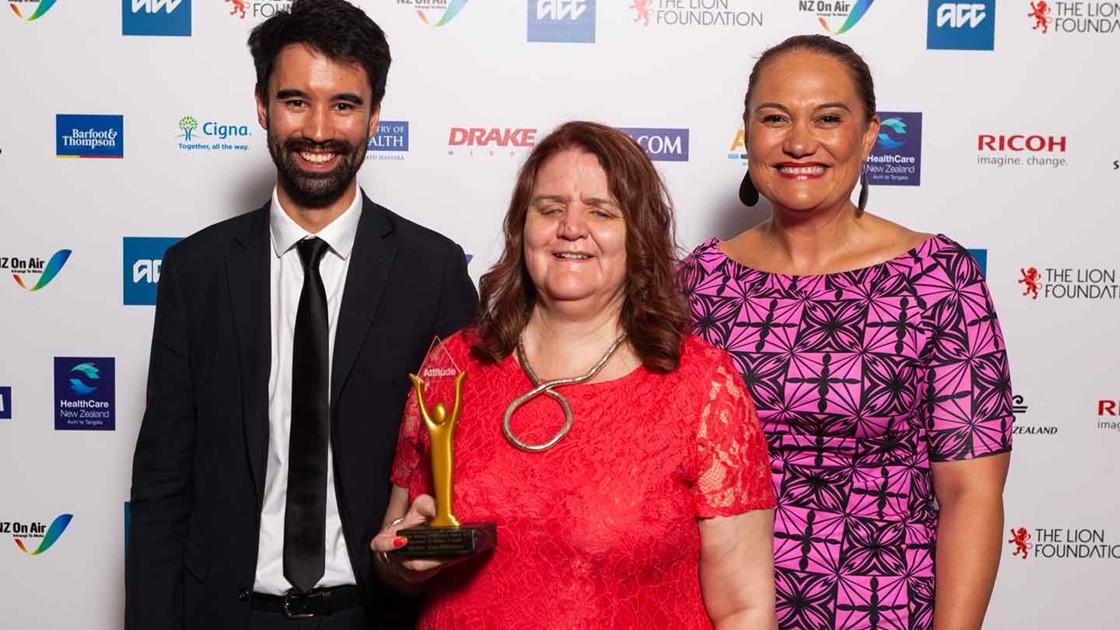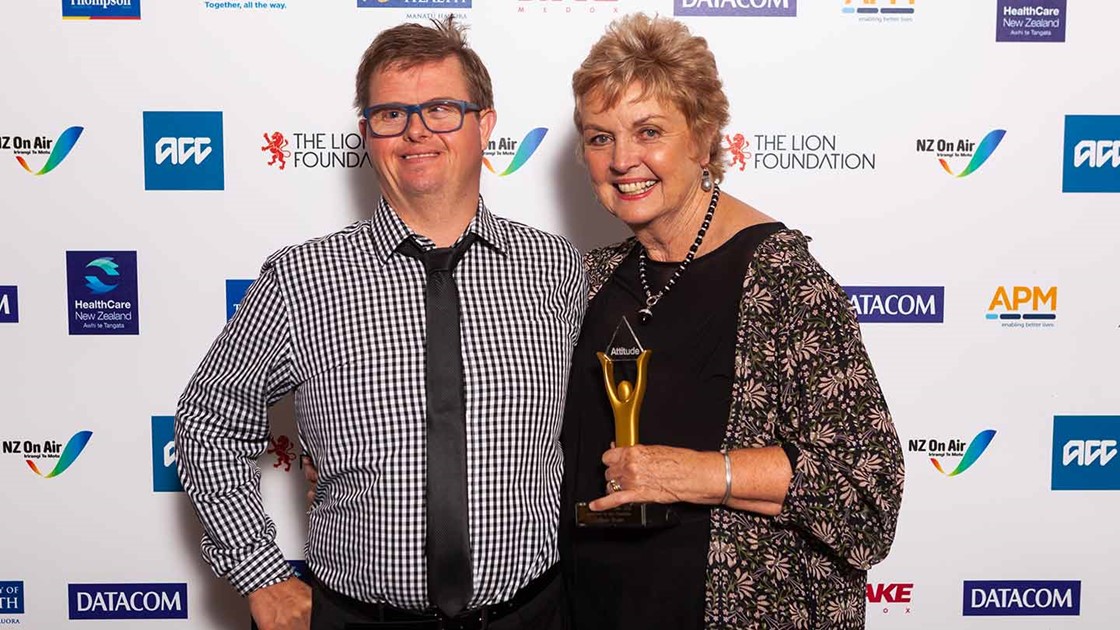Of the $111 billion outlined by the Government in 2019 $548 million of that will be spent on initiatives that directly affect disabled people.
Attitude asked two prominent disability advocates for their thoughts on how the latest allocation of funds will affect the disabled community: 2019 Supreme Attitude Award winner, Martine Able-Williamson and 2019 Attitude Hall of Fame inductee, Colleen Brown.
“Don’t tell me your values; show me your budget and I’ll tell you what you value.” - Joe Biden, 47th Vice President of the US.
This year’s ‘Wellbeing’ budget is one that, for Martine Abel-Williamson at least, reflects the way the current Government feels about disabled persons, their whanau and carers.
Employment $26.332m
The goal for the Government here is to improve work and wider wellbeing outcomes for disabled people and people with health conditions.
Martine hopes this means the long-standing issue of the Minimum Wage Exemption is abolished this time round.
“The government has been sitting on this matter for over 5 years now,” she says, “so some of the promised employment related funding should go towards enabling disabled persons to earn a decent standard of living.”
Martine also hopes for a change to legislation that will “take away this current discriminatory practice.”
“Disabled persons should not remain the exception to permit employers to pay them as little as $2 per hour.”

Education $13.97m
Nearly $14m of Education funding has been earmarked for the disabled sector through
Learning Support, which includes maintaining access to education for deaf and hard of hearing children and young people, and increasing access to assistive technology.
Colleen Brown believes disabled children benefit from a more inclusive education system that better supports their needs and says “there are many parts of the freshly announced budget that will be welcomed by teachers and parents alike.”
“As always,” she continues, “there is that wait and see aspect when a new direction is revealed and the devil is always in the detail.”
“But make no mistake, she says, this is a significant- disability related budget, possibly the most money directed at disability I think I’ve ever seen. I get the sense from listening to the politicians and reading between the lines that the distinct silos that formed government in the past are now less separate and we will see more blurred boundaries between the different ministries. It may take some time for us all to see how that will work.”
Colleen says that for the whole of their son Travers’ time at school, getting appropriate resourcing for him was always a struggle. “As parents we had to argue the case for our disabled child for a negative point of view, the deficit model reigned supreme in attracting resources.”

“But that is a long time ago,” acknowledges Colleen. Now she wants to see if things have changed.
“Certainly families with hearing impaired children will be pleased with the recognition in the budget of their particular needs,” believes Colleen, “but what does the rest of the money mean in real terms for families who are often locked in conflict with the very people they need to partner with to get enough support for their children in the classroom.”
“Sadly the stories of not only accessing education but also resourcing the needs of disabled students still abound. In addition when a parent takes their child to a school they want to know that the teacher in charge of their child’s learning has not only the knowledge to do that but the support within the school to achieve it.”
“Parents and caregivers across the country will be watching how the introduction of the learning support co-ordinators and additional supports translate into real outcomes for their children.”
Health $23.024m
Martine hopes Health funding will allow a speed ramp in work currently underway on System Transformation.
“This new system, she says, “will lead to disabled persons being able to employ whoever they wish for disability service provision, but the roll-out from Mid-Central is progressing very slowly.”
“The Mid-Central area is now benefiting from the pilot,” says Martine “but will the additional DSD health funding allow for quicker roll-out across the country?”
The rest of NZ’s disabled population could benefit from the same if funding under this budget is directed toward this space.
Child Development also embeds itself into the Health allocation. With $35m over 5 years, the aim is to increase the access to and modernising of child development services. This is focused on improving the health and social outcomes of children with additional needs.
Colleen believes this is important and if managed proactively, it can bridge some existing gaps. “Identifying and resourcing children with additional needs prior to starting school has been a challenge for a long time,” she says “I’m hopeful that this package will address some of those concerns.”
But for Colleen, some questions still remain? Where are all the trained people coming from to make these far reaching ideas work? What are the accountability measures that will be put in place for early learning providers and schools? What part of the budget will be wrapped around educating – parents, principals and teachers about this new initiative?
“As ever it is a watch, wait and see operation. We look forward to working with the various ministries to see these money numbers translate into real outcomes for families.”
NZ Sign Language
The 2019 Budget has invested an additional $445,000 per year into the NZSL Board and Strategy in recognition of the need to contribute to on-going activities such as NZSL week and the maintenance of the NZSL Dictionary.
Office for Disability Issues (ODI)
The increased demand on the work of the Office for Disability Issues (ODI) in responding to increased demand for advice on disability issues and progressing the Disability Strategy and Action Plan has also been recognised in the budget through an additional $870,000 per year for ODI.
“This will fund additional positions in the Office,” says Martine, “and will increase resources that will enable progress on the Disability Strategy.”
Martine believes this is particularly good news, “especially for those of us who’re hoping that the government will be held to account for the implementation and monitoring of the NZ Disability Strategy through the action plan that will make it practical.”
“The increase for the Disabled People’s Organisations (DPO) Coalition is of note,” she continues, “they will receive a budget increase from $100k to $385k, which recognises the increased demand to progress the United Nations Convention on the Rights of Persons with Disabilities (UNCRPD).”
The Government’s goal here is to recognise cost pressures experienced over the past few years within the delivery of selected programmes and services.
Some community participation services for disabled people that allow them to more fully participate in their communities through enhancement of available skills, knowledge and services.
Disability Support Services $348.4m
As the chair of Disability Connect, Colleen says, categorically that they are hurting.
“Never before have the demands on their services been so great,” she says. “Parents and families of disabled people need support, end of discussion.”
Colleen continues; “What we need to acknowledge is that parents and families are often the ones to carry out the unrealistic expectations from not only society but from every level of government for their disabled child with what seems like minimal support and recognition.”
“We need more funds to do the work we do. Whether this budget will provide that, I am not sure. Again, the devil is always in the detail. However, parents and caregivers need to know that there will be no cuts to services from the Ministry of Health for disabled people. If the MoH can work more efficiently to achieve that then that is great.”
Colleen always looks forward to working with the MoH to achieve positive outcomes for Kiwi families.
“We all know that often families often have a multiplicity of needs beyond that of the person with a disability, she says. If government agencies are going to work together to provide more acceptable outcomes for families so they can stay together, be strong and advocate for their needs then that is a significant step in the right direction.”
To Colleen, that sounds as though we may be on the brink of a Whanau Ora type service and that would be a sea change in how things are done in the disability sector.
On the face of it there’s a lot to be optimistic about with this budget. "Let's hope," says Martine, "that as the budget implementation commences we can feel more valued, as the disabled community benefits from the largest ever funding increase in disability initiatives."


